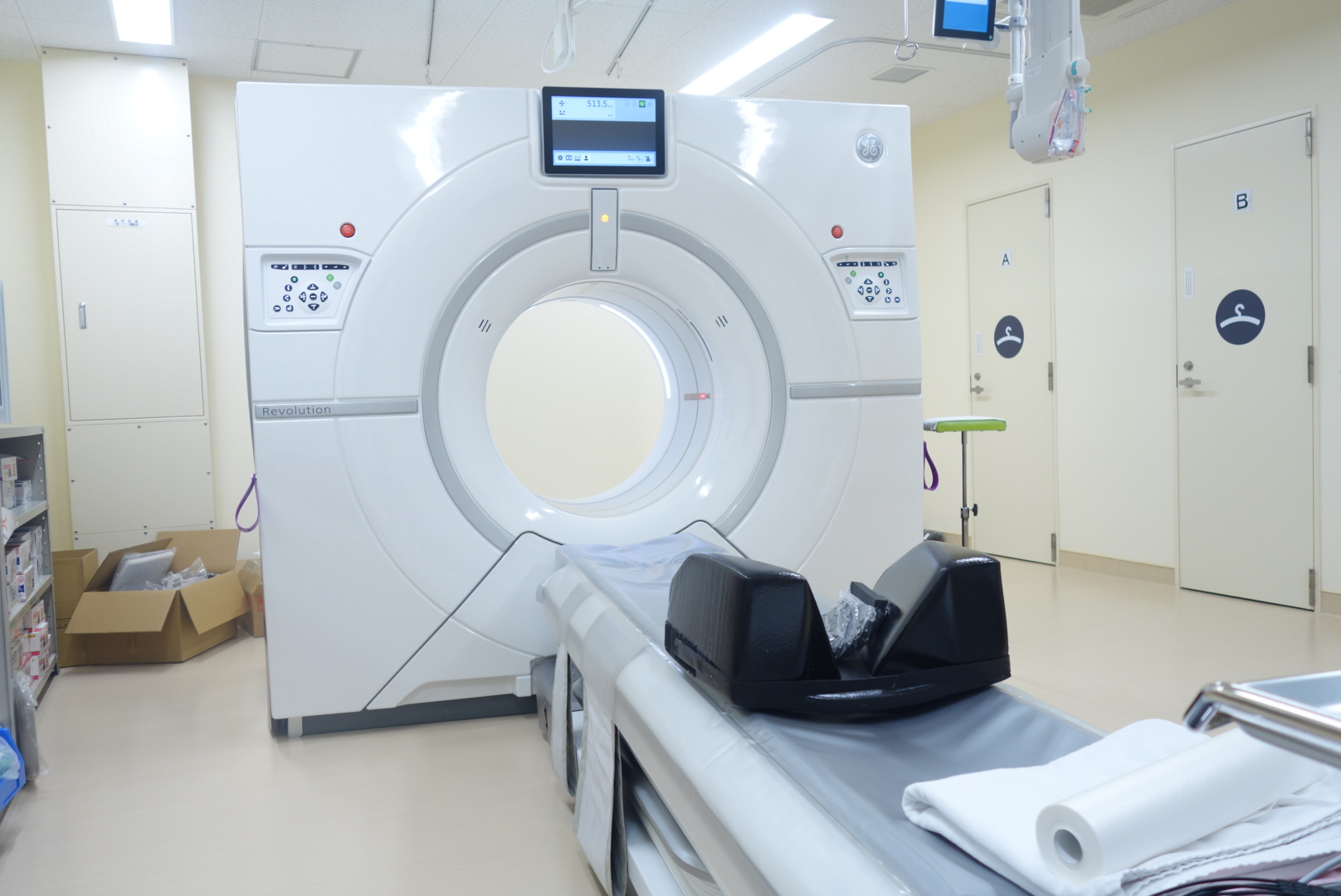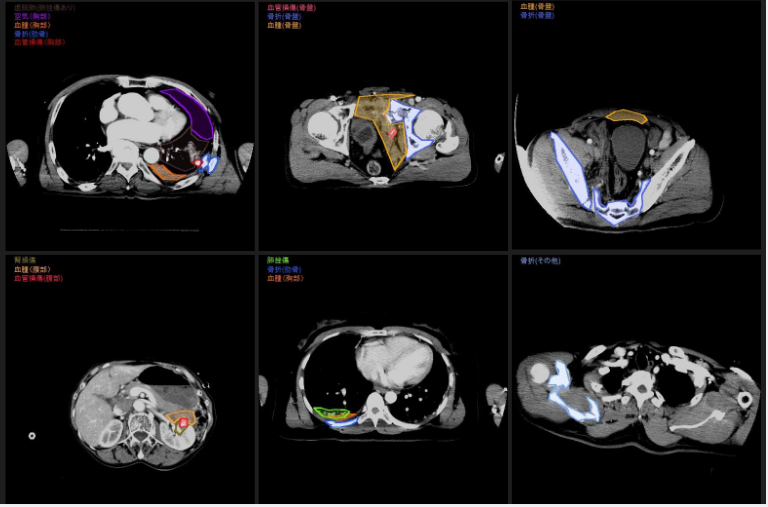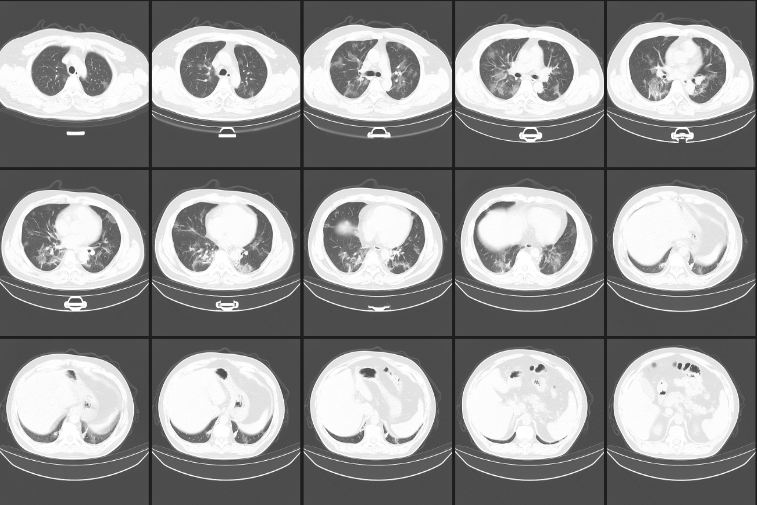The medical environment is filled with numerical and visualized information such as physiological data, blood data, and CT data. In the emergency medical care site, where immediate treatment is required, there is no time to spend a long time grasping this information. In fact, it is frequently the case that physicians are unable to reach critical findings buried in a vast amount of data, and thus fail to save lives. By properly organizing information with the power of AI and other technologies, we can eliminate deaths caused by delayed or overlooked diagnosis and create a future in which lives can be saved no matter when or where a patient is brought to the hospital. As a first step, we are developing AI and user interface technology to achieve efficient diagnosis of CT images, which take the most time to interpret and are misdiagnosed relatively frequently.

Severity evaluation system for emergency whole-body CT scans
We are developing an "severity evaluation system" for the treatment of trauma. It is one of the most urgent emergency conditions. Our system uses AI to assist diagnosing whole-body CT scans, which is time consuming and requires ER doctors a great deal of effort. The project leader is an active emergency physician and specializes in medical AI development, and other project members have rich experience in AI development and implementation. We are working with doctors in clinical fields to develop evaluation models for multiple organs. In parallel with the development, we are constantly obtaining feedback through on-site trials to ensure the optimal implementation for the clinical site.

AI-assisted COVID-19 Diagnosis
We have developed a COVID-19 diagnostic AI model, which analyzesCT images to accurately and quickly triage COVID-19-infected patients. As a part of COVID-19 AI & Simulation Project by the Cabinet Secretariat, we collected patient data from more than 4,000 cases from 12 medical institutions in Japan with the backup of the Japanese Association for Acute Medicine. The project leader, a front-line COVID doctor, and the engineering team at fcuro are developing with emergency physicians an AI model which is optimized for clinical sites in Japan. We implement our system at joint research partner hospitals.

Artificial inteligence tool for the development of diagnostic imaging AI
The most difficult part of developing diagnostic imaging AI is to prepare training datasets. Training datasets are created from DICOM images and diagnostic imaging reports, but the formats of these data are often not standardized. We are developing a system that semi-automatically creates highly reliable training data sets by standardizing and correlating these two types of data. Through joint research with doctors in the clinical field, we are currently improving our system so that medical professionals without special knowledge in AI engineering would also be able to develop diagnostic imaging AI.
